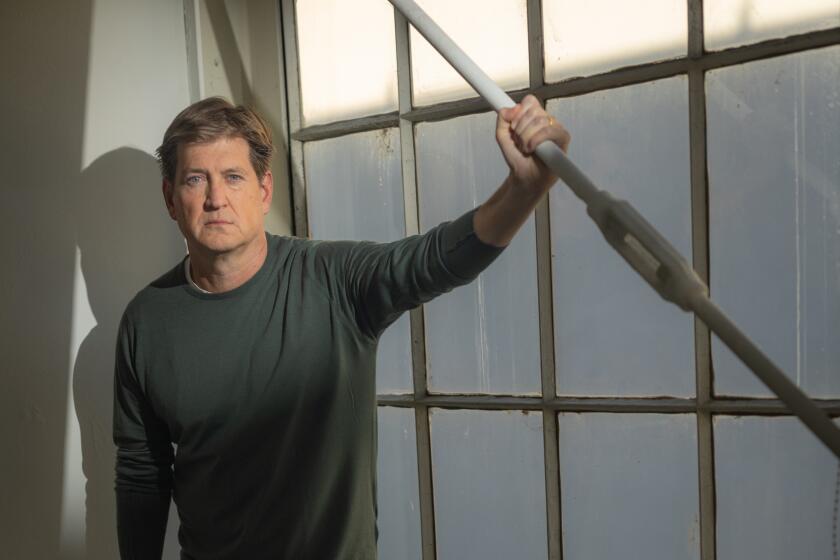TV REVIEW : ‘Crossing Borders’ Provides Vivid Portrait of Carlos Fuentes
The disappointment with a lot of documentaries about famous writers is that you don’t sense the color and themes of their literary achievement. Often, what you’re left with is a portrait of the artist as merely a celebrity figure.
“The Journey of Carlos Fuentes: Crossing Borders,” which airs at 10 tonight on Channels 28 and 15 and at 9 on Channel 24, is a welcome, if demanding, respite from mere personality portraiture. The broadcast makes constant effort, albeit sometimes clumsily, to explore the verbal imagery of this major novelist, whose detractors have called him a fraud and “a Gringo child of Mexican origins.”
The 60-year-old Fuentes is featured in most of the footage and co-narrates the hourlong show with actor Luis Valdez. Indeed, Fuentes comes off as an unabashed self-promoter in some instances and a bit pompous in others.
Footage of Jane Fonda and Gregory Peck from the dusty location of “The Old Gringo” is pure hype. But the thrust and strength of the documentary is writer Stephen Talbot and director Joan Saffa’s treatment of Fuentes’ obsession in his work with the anguished relationship between Mexico and the United States.
The production, shot in Mexico, Nicaragua and the United States, almost demands some familiarity with Fuentes’ books (which include the Ambrose Bierce-inspired “The Old Gringo,” on which the current film is based, and Fuentes’ acclaimed epitaph for the Mexican Revolution, “The Death of Artemio Cruz,” whose entitled character was a kind of Mexican Citizen Kane and from which the novelist reads, among other works).
Interview subjects include author William Styron, who credits Fuentes’ “North American eye” for his paradoxical Latino-Anglo viewpoint (Fuentes spent his childhood as the privileged son of a diplomat in Washington.).
Fuentes’ “itinerant intellectualism,” which includes a professorship at Harvard and a Mexican ambassadorship to France, is flavored with old movie and newsreel clips for the movie-addicted author.
His support of Castro and the Sandinistas, his persistent theme of Indian culture in his literature, not to mention what the narrative describes as his “ridicule of the (Catholic) church’s attempts to suppress sexuality,” create a jammed catalogue of material for a writer who has been a force in the internationalization of Latin-American literature.
More to Read
The complete guide to home viewing
Get Screen Gab for everything about the TV shows and streaming movies everyone’s talking about.
You may occasionally receive promotional content from the Los Angeles Times.






